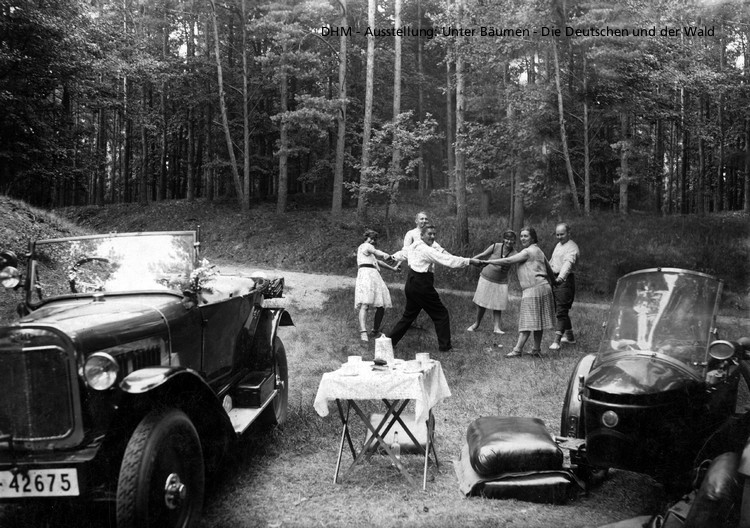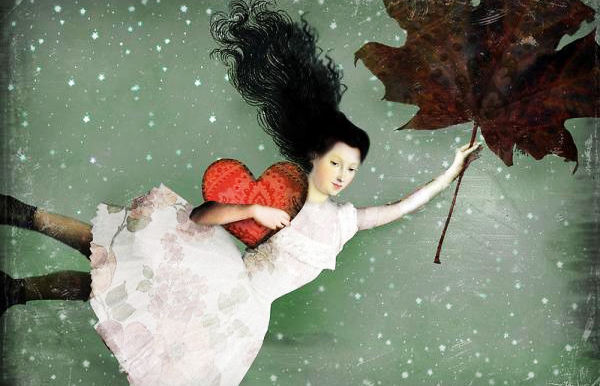wanderlust
Beyond Nude Bathing and War

Having entered the mirrored doors, my eyes quickly adjusted to the dim lights and earthy brown and green hues of the room, as the invigorating, smoky-sweet scent of cedar wood lured me further in. First site: a life-size plush stag and dozens of children huddled together in miniature wooden theatres watching the Grimm Brother’s fairytales with their parents. The initial alarm that was set off in my mind quieted; the kids were mesmerized and there was no fussing or crying to be heard. People of all ages appeared spell-bound by the exhibit – a lifespan also captured by the timeless wooden relics on display in the entrance: from a classic rocking horse and a stilled cuckoo clock, to a bare, oak coffin and urn.
A performance by the visitors
As expected, the exhibit effectively highlights and romanticizes the more kitschy Bambi and stag skulls, portraits of nobility with hunting rifles in tow, endless screenings of so-called Homeland Movies (Heimatfilme), and of course, a dark corner with a full moon, police tape and all serving as a tribute to the famous German show Tatort. The exhibition even boasts original artwork from the most beloved stories such as Little Red Riding Hood and the pre-Hollywood Bambi. Walking into a makeshift fort, the kind one builds as a child, I found an older German man hunched over a book; his nostalgic expression and longing was priceless and really showed the exhibit’s ability to bring you back to your childhood, roots, and moral upbringing.
Continuing through the exhibit’s maze and cave-like enclosing, there is quite a juxtaposition with more deep and intellectual German poetry, literature, and artwork – all of which portray the forest as a site of freedom, solitude, self-realization, and a place to meet and overcome challenges.
But what is it about the Germans and their trees in particular?
Hans-Jochen Vogel, a former leader of the Social Democratic Party (SPD), proclaimed: “When it comes to the trees, then we get a people’s movement,” (Wenn’s um die Bäume geht, da kriegen wir eine Volksbewegung) alluding to the emotional connection Germans have to their forests.
Be the first to write a comment.
Your feedback
